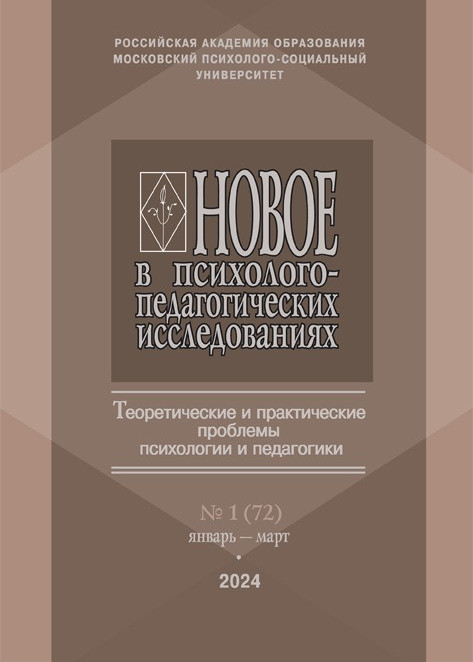Library
1. 10. Николл Х. М. Анкетирование: инструмент из набора медсестер-инструкторов / Х. М. Николл // Медсестра. Образовательная практика. — 2007. — № 7. — С. 285–292.
2. Nikoll Kh. M. Anketirovanie: instrument iz nabora medsester-instruktorov / Kh. M. Nikoll // Medsestra. Obrazovatel’naya praktika. — 2007. — № 7. — S. 285–292.
3. 11. Нил М. А. Вовлечение учащихся с помощью эффективных вопросов / М. А. Нил // Образование Канады. — 2012. — № 52. — С. 16–28.
4. Nil M. A. Vovlechenie uchashchikhsya s pomoshch’yu effektivnykh voprosov / M. A. Nil // Obrazovanie Kanady. — 2012. — № 52. — S. 16–28.
5. 12. Развитие критического мышления учащихся: способность педагогов использовать навыки постановки вопросов в программах бакалавриата по сестринскому делу в Пакистане / Т. Саид, С. Хан, А. Ахмеди [и др.] // J Pak MedAssoc. — 2012. — № 63. — С. 200–203.
6. Razvitie kriticheskogo myshleniya uchashchikhsya: sposobnost’ pedagogov ispol’- zovat’ navyki postanovki voprosov v programmakh bakalavriata po sestrinskomu delu v Pakistane / T. Said, S. Khan, A. Akhmedi [i dr.] // J Pak MedAssoc. — 2012. — № 63. — S. 20
7. 13. Роу М. Б. Время ожидания: замедление может быть способом ускорения! / М. Б. Роу // Преподавать образование. — 1986. — № 37. — С. 43–50.
8. Rou M. B. Vremya ozhidaniya: zamedlenie mozhet byt’ sposobom uskoreniya! / M. B. Rou // Prepodavat’ obrazovanie. — 1986. — № 37. — S. 43–50.
9. 14. Уилсон Н. С. Вопросы как мышление: метакогнитивная структура для улучшения понимания описательного текста / Н. С. Уилсон, Л. Сметана // Грамотность. — 2011. — № 45. — С. 84–90.
10. Uilson N. S. Voprosy kak myshlenie: metakognitivnaya struktura dlya uluchsheniya ponimaniya opisatel’nogo teksta / N. S. Uilson, L. Smetana // Gramotnost’. — 2011. — № 45. — S. 84–90.
11. 15. Чардиелло А. В. Ты сегодня задал хороший вопрос? Альтернативные когнитивные и метакогнитивные стратегии / А. В. Чардиелло // J Adolesc Adult Lit. — 1998. — № 42. — С. 210–219.
12. Chardiello A. V. Ty segodnya zadal khoroshii vopros? Al’ternativnye kognitivnye i metakognitivnye strategii/ A.V.Chardiello// J Adolesc Adult Lit. — 1998. — №42. — S.210–219.
13. 16. Эртмер П. А. Взаимодействие учащегося с контентом в онлайн-курсах: роль подсказок в содействии взаимодействию более высокого уровня с содержанием курса / П. А. Эртмер, А. Садаф, Д. Дж. Эртмер // Вычислительное высшее образование. — 2011. — № 23. — С.
14. Ertmer P. A. Vzaimodeistvie uchashchegosya s kontentom v onlainkursakh: rol’ podskazok v sodeistvii vzaimodeistviyu bolee vysokogo urovnya s soderzhaniem kursa / P. A. Ertmer, A. Sadaf, D. Dzh. Ertmer // Vychislitel’noe vysshee obrazovanie. — 2011. — № 23
15. 17. Ян Ю. С. Использование сократовских вопросов для развития навыков критического мышления посредством асинхронных дискуссионных форумов в среде дистанционного обучения / Ю. С. Ян, Т. Дж. Ньюби, Р. Л. Билл // Дистанционное образование. — 2005. — № 19. —
16. Yan Yu. S. Ispol’zovanie sokratovskikh voprosov dlya razvitiya navykov kriticheskogo myshleniya posredstvom asinkhronnykh diskussionnykh forumov v srede distantsionnogo obucheniya / Yu. S. Yan, T. Dzh. N’yubi, R. L. Bill // Distantsionnoe obrazovanie. — 2
17. 1. Андерсон Л. В. Таксономия обучения, преподавания и оценки: пересмотр таксономии образовательных целей Блума / Л. В. Андерсон, Д. Р. Кратволь, П. В. Айразиан. — Бостон : PearsonAllyn&Bacon, 2001. — 257 с.
18. Anderson L. V. Taksonomiya obucheniya, prepodavaniya i otsenki: peresmotr taksonomii obrazovatel’nykh tselei Bluma / L. V. Anderson, D. R. Kratvol’, P. V. Airazian. — Boston : PearsonAllyn&Bacon, 2001. — 257 s.
19. 2. Богосян П. Сократическая педагогика: недоумение, унижение, стыд и разбитое яйцо / П. Богосян // Обучать теории философии. — 2012. — № 44. — С. 710–720.
20. Bogosyan P. Sokraticheskaya pedagogika: nedoumenie, unizhenie, styd i razbitoe yaitso / P. Bogosyan // Obuchat’ teorii filosofii. — 2012. — № 44. — S. 710–720.
21. 3. Боукер М. Х. Учить детей задавать вопросы, а не отвечать на них / М. Х. Боукер // Мысль и действие. — 2010. — № 26. — С. 127–134.
22. Bouker M. Kh. Uchit’ detei zadavat’ voprosy, a ne otvechat’ na nikh / M. Kh. Bouker // Mysl’ i deistvie. — 2010. — № 26. — S. 127–134.
23. 4. Блум Б. С. Таксономия образовательных целей: Классификация образовательных целей: Справочник 1: Когнитивная область / Б. С. Блум. — Нью-Йорк : Дэвид Маккей Ко Инк, 1956. — 168 с.
24. Blum B. S. Taksonomiya obrazovatel’nykh tselei: Klassifikatsiya obrazovatel’nykh tselei: Spravochnik 1: Kognitivnaya oblast’ / B. S. Blum. — N’yu-Iork : Devid Makkei Ko Ink, 1956. — 168 s.
25. 5. Бранкати Ф. Искусство сутенерства / Ф. Бранкати // Джама. — 1989. — № 262. — С. 89–90.
26. Brankati F.Iskusstvo sutenerstva/ F.Brankati// Dzhama. — 1989. — №262. — S.89–90.
27. 6. Вилен В. В. Навыки постановки вопросов для учителей / В. В. Вилен. — Вашингтон, 1991. — 126 с.
28. Vilen V. V. Navyki postanovki voprosov dlya uchitelei / V. V. Vilen. — Vashington, 1991. — 126 s.
29. 7. Использование стратегий опроса клиническими учителями // С. Селлаппа, Т. Хасси, А. М. Блэкмор, А. Мак-Мюррей // Ад Нурс. — 1998. — № 28. — С. 142–148.
30. Ispol’zovanie strategii oprosa klinicheskimi uchitelyami // S. Sellappa, T. Khassi, A. M. Blekmor, A. Mak-Myurrei // Ad Nurs. — 1998. — № 28. — S. 142–148.
31. 8. Кристенбери Л. Опрос: путь к критическому мышлению / Л. Кристенбери, П. П. Келли. — Иллинойс : Национальный совет учителей английского языка, 1983.
32. Kristenberi L. Opros: put’ k kriticheskomu myshleniyu / L. Kristenberi, P. P. Kelli. — Illinois : Natsional’nyi sovet uchitelei angliiskogo yazyka, 1983.
33. 9. Кузина Н. А. Управленческий консталтинг : учеб. пособие / Н. А. Кузина. — Омск : Изд-во ОмГТУ, 2014. — 164 с.
34. Kuzina N. A. Upravlencheskii konstalting : ucheb. posobie / N. A. Kuzina. — Omsk : Izd-vo OmGTU, 2014. — 164 s.
